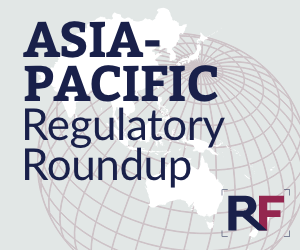Asia-Pacific Roundup: TGA relaxes rules on psilocybin, MDMA to enable prescribing by psychiatrists
 AsiaBiologics/ biosimilars/ vaccinesDiagnostics/IVDsMedical DevicesOceaniaPharmaceuticalsProduct LifecycleRegulatory Intelligence/Policy
AsiaBiologics/ biosimilars/ vaccinesDiagnostics/IVDsMedical DevicesOceaniaPharmaceuticalsProduct LifecycleRegulatory Intelligence/Policy AsiaBiologics/ biosimilars/ vaccinesDiagnostics/IVDsMedical DevicesOceaniaPharmaceuticalsProduct LifecycleRegulatory Intelligence/Policy
AsiaBiologics/ biosimilars/ vaccinesDiagnostics/IVDsMedical DevicesOceaniaPharmaceuticalsProduct LifecycleRegulatory Intelligence/Policy